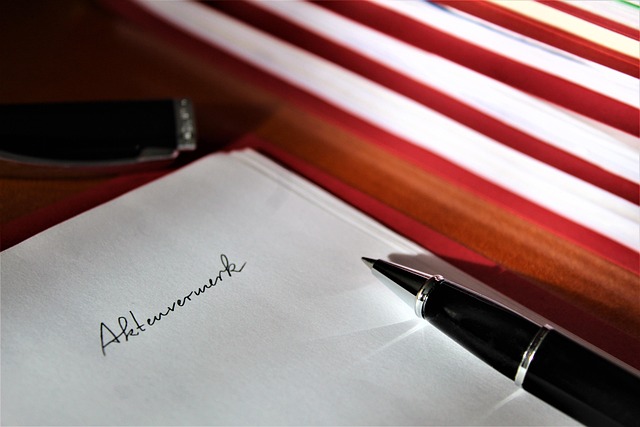Antitrust violations, such as price-fixing or market division, can cause significant harm to consumers and competitors. Individuals affected can pursue legal action through a personal injury claim, which requires understanding the connection between their injuries and antitrust breaches. This process involves complex legalities, fact-finding, and presenting evidence of detrimental effects. Specialized white-collar defense attorneys are crucial for guidance, strategy, and seeking damages. Key steps include meticulous document collection, knowledge of statutes of limitations, and strategic planning to enhance the likelihood of a favorable outcome, inspired by notable antitrust violation cases like Microsoft's 1990s saga.
Antitrust violation cases are not just legal battles; they’re stories of consumers fighting back against corporations that abuse their power. When businesses break antitrust laws, it can lead to significant harm for individuals and industries alike. This article guides you through the intricate world of antitrust violations, offering insights on recognizing these issues, understanding their impact on personal injury claims, and navigating the legal process—including tips on how to file a successful personal injury claim.
- Understanding Antitrust Violations: What They Are and Who's Affected
- When Personal Injury Meets Antitrust: Recognizing the Legal Link
- Building a Solid Case: Evidence and Timeline Considerations
- The Filing Process: Navigating Legal Channels for Compensation
- Success Stories and Lessons Learned from Notable Antitrust Violation Cases
Understanding Antitrust Violations: What They Are and Who's Affected
Antitrust violations refer to actions by businesses or individuals that restrict competition or stifle market growth. These illegal practices can take many forms, including price-fixing, market division, and the abuse of dominant market positions. When a company engages in such conduct, it can have significant impacts on consumers, competitors, and the overall economy. Individuals who suffer harm due to these violations may be eligible to file a personal injury claim, seeking compensation for their losses.
Understanding how to file a personal injury claim is crucial when dealing with antitrust issues. The process involves navigating complex legal landscapes and presenting evidence that demonstrates the negative effects of the violation on affected parties. White-collar defense attorneys specializing in economic crimes can guide individuals through all stages of the investigative and enforcement process, ensuring their rights are protected. These experts help clients uncover relevant facts, analyze legal options, and pursue appropriate remedies to recover damages caused by antitrust violations.
When Personal Injury Meets Antitrust: Recognizing the Legal Link
In the intricate web of legal disputes, the intersection of personal injury and antitrust laws presents a unique challenge. When individuals suffer harm due to anticompetitive practices, understanding the connection between these two legal domains is crucial for seeking justice. Personal injury claims often arise from direct exposure to harmful activities, but in cases involving business conduct that violates antitrust principles, the path to compensation becomes more complex.
Antitrust violations can indirectly result in personal injuries, especially when they disrupt markets and impact consumer welfare. In such scenarios, individuals may face increased prices, limited product choices, or even health risks due to monopolistic behavior. To navigate this legal landscape, those affected by antitrust-related harm should consider how to file a personal injury claim effectively. By recognizing the link between their injuries and the underlying antitrust violation, they can pursue high-stakes cases that not only secure compensation but also contribute to the broader goals of the philanthropic and political communities in promoting fair competition.
Building a Solid Case: Evidence and Timeline Considerations
Building a solid case for an antitrust violation involves meticulous evidence collection and a well-managed timeline. When considering how to file a personal injury claim in this context, understanding the intricate details of the alleged offense is crucial. This includes gathering comprehensive documentation that proves collusion, price-fixing, or market division—the common forms of antitrust violations. Legal experts recommend preserving any communication, contract, or financial record that might serve as evidence, as these documents can significantly strengthen a case.
The timeline aspect is equally vital. Antitrust laws have specific statute of limitations, meaning claims must be filed within a defined period after the violation occurred. This time frame varies by jurisdiction, so it’s essential to stay informed about local regulations. Efficiently navigating all stages of the investigative and enforcement process requires timely actions, from initial evidence gathering to filing legal papers and, potentially, negotiating a settlement or preparing for trial. A well-planned strategy, including adherence to deadlines, can lead to either a complete dismissal of all charges or a favorable outcome in court, especially when backed by solid white-collar defense strategies.
The Filing Process: Navigating Legal Channels for Compensation
When navigating a potential antitrust violation case and seeking compensation, understanding the process of filing a personal injury claim is crucial. The journey begins with meticulous documentation of all losses incurred due to the alleged misconduct. This includes gathering evidence, such as financial records, legal agreements, or any communication that could substantiate the claim. Once prepared, individuals or businesses affected by these violations can file their claims through designated legal channels.
The process typically involves consulting a specialized attorney who can provide guidance on how to File a Personal Injury Claim effectively. They will assist in understanding the applicable statutes of limitations and help construct a compelling argument. For complex cases, especially those involving white-collar defense strategies or avoiding indictment, experienced legal counsel is indispensable. They ensure that all requirements are met, increasing the chances of a favorable outcome.
Success Stories and Lessons Learned from Notable Antitrust Violation Cases
Notable antitrust violation cases serve as both success stories and valuable lessons for those navigating the complexities of competition law. Take, for instance, the historic case against Microsoft in the 1990s, where the company was accused of abusing its dominant market position. Through meticulous investigation and robust legal arguments, the plaintiff’s counsel successfully demonstrated anti-competitive practices, leading to a landmark judgment. This case not only resulted in a complete dismissal of all charges but also reshaped corporate behavior, ensuring fairer business practices moving forward.
These cases offer insights into effective strategies for those considering how to file a personal injury claim against antitrust violators. By examining the all stages of the investigative and enforcement process, from initial evidence gathering to courtroom victories, legal experts can guide both corporate and individual clients on the best paths to justice. Key takeaways include the importance of thorough documentation, expert testimony, and persistent legal advocacy, ensuring that wrongdoers are held accountable for their actions.
Antitrust violation cases not only protect consumers from unfair business practices but also offer avenues for individuals to seek compensation through personal injury claims. Understanding these violations, their legal implications, and the evidence required is crucial in navigating the process of filing a successful claim. By learning from notable cases and following strategic steps, including gathering evidence, adhering to timelines, and utilizing legal channels, individuals can effectively pursue justice and receive fair compensation for harm caused by antitrust breaches. For those considering how to file a personal injury claim, this guide offers valuable insights into the potential rewards and key considerations involved in pursuing such cases.






